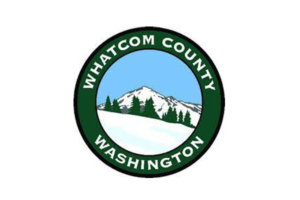The field of economic development utilizes programs, policies, and commercial activities to improve a community’s economic well-being and quality of life. The field of food system planning can bring together diverse stakeholders from across the food system who are also interested in community well-being and quality of life.
As we help our clients create food system plans, we listen to community members to inform the goals under which all strategies and action plans are organized. These goals can range from improving food access, spurring local food production, protecting natural resources, and reducing food waste. Equity, environmental sustainability, and community health are often at the heart of these goals, and those reasons are enough to justify investment in the food system.
Yet when it comes to presenting food system plans to local leaders for their endorsement or to elected officials for formal policy adoption, it’s often the economic impact the plan can have in the community that gets their attention and support. Developing a robust local food system can be a tool for economic development, especially in rural or under-resourced regions or areas near urban centers with high demand for locally-produced foods.
What are the economic benefits of a strong local food system?
A thriving local food system stimulates many tangible economic benefits. The top benefits include job creation, wealth creation, and downtown redevelopment and enhanced quality of place (NC Cooperative Extension).
—> Job Creation
A local food system creates and supports a diverse array of jobs, including farm workers, processors, distributors, and retail workers (restaurants, grocers), in addition to the jobs surrounding or supporting those jobs indirectly like technical assistance providers, suppliers, and those required to warehouse, manufacture, and move food items or packaging throughout the system. A 2010 study by UW-Madison for the Institutional Food Market Coalition estimated that 2.2 jobs are created for every $100,000 in local food sales.
—>Wealth Creation
Both job creation and downtown redevelopment can lead to more money in the pocket of a farmer, retailer, or food business in addition to the tourism and outside dollars a thriving community can bring in. Strong local food systems also lead to healthier communities that are productive in their work, spend money in their communities, and invest in local businesses.
—>Downtown Redevelopment and Enhanced Quality of Place
Communities with strong local food systems often have more vibrant downtown communities, public community gathering places created by farmer’s markets or harvest festivals, a sense of community identity and belonging, and storefronts that provide food and retail opportunities for residents (coffee shops, bakeries, small grocery, delis, specialty food stores, restaurants, breweries, etc.). There are many avenues in which redevelopment can capitalize on existing resources, identity, needs, or assets. A few examples from the EPA Local Foods, Local Places Toolkit include:
-
- Diversifying the local economy and sustaining or reinvigorating a region’s agricultural heritage.
- Increasing the vitality of a historic Main Street or an existing neighborhood, helping to attract reinvestment and growth to these areas.
- Revitalizing already-developed areas to reap environmental benefits.
- Reducing food insecurity and shrinking food deserts.
How can communities support economic growth through their local food system?
There are several ways for counties and towns to support the development of local food systems. The first step is creating a steering committee, or a local food council, to lead the endeavor. When planning new initiatives to promote economic development, the committee should identify strategies that consider agricultural assets and the kinds of consumer demand and available supply in their region.
New Venture Advisors utilizes various approaches and strategies to support food and farm businesses that will grow the local food system. These are a few examples from our portfolio and beyond:
-
- Attracting food-based businesses or the creation of food business clusters (Example: Newbo City Market)
- Feasibility studies for food value chain infrastructure (i.e., food hubs, processing facilities) (Example: Damian’s Meat Processing)
- Grocery store transition planning and new store attraction (Example: St. John’s, Kansas)
- Small business loans or grants for food system entrepreneurs (Example: WNC AgOptions)
- Commercial kitchen incubators for food system entrepreneurs (Example: Glacial Hills Food Center or CLiCK)
- Business support, growth planning, and technical assistance for farms and agricultural enterprises (Example: Shagbark Seed & Mill).
Please contact us if we can help your community take the next step in building economic vitality through a thriving local food system.
Image courtesy of Shutterstock



